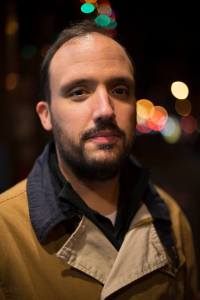Looking back at the original Spider-Man 2099 run with Peter David
And his intent to make him the opposite of the modern-day Spider-Man
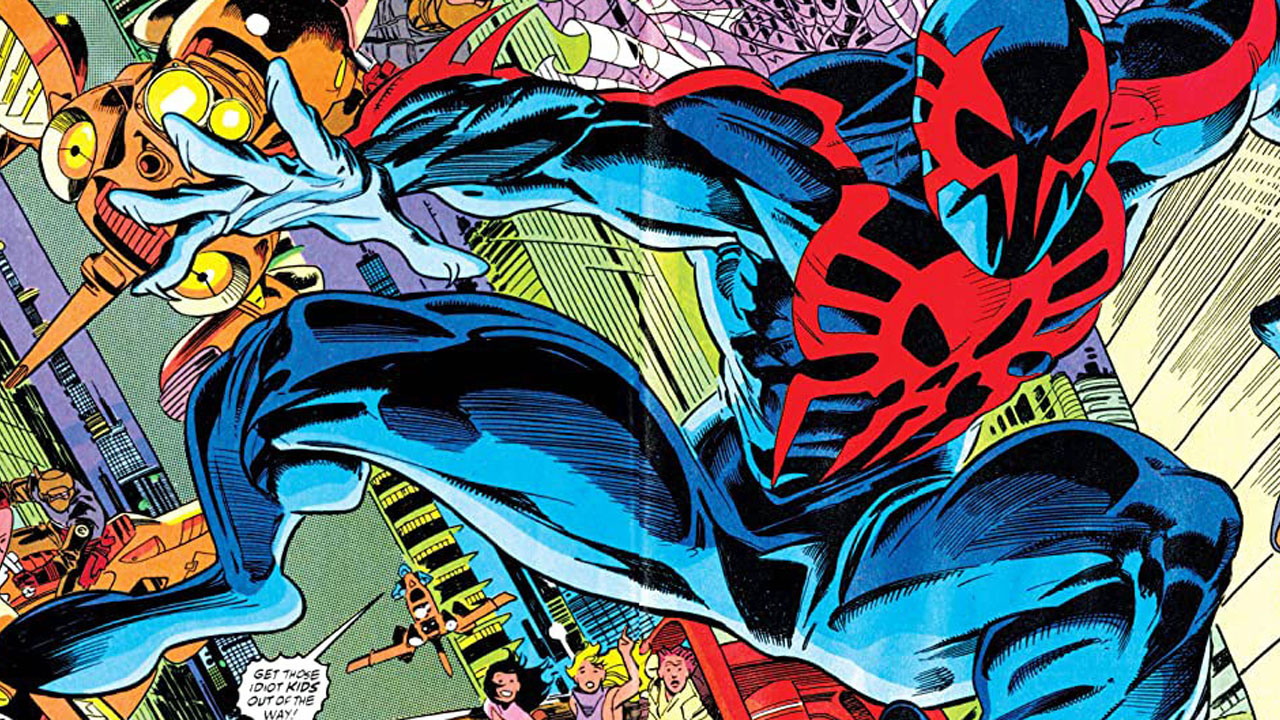
Remember the original Spider-Man 2099?
When Marvel Comics' 2099 line was good, it was really, really good, but when it was bad, it was beyond horrid. While the line itself was a noble experiment at establishing the Marvel Universe nearly 100 years hence, all of the titles of this mid-'90s experiment are generally forgotten now - save one: Spider-Man 2099, written by Peter David.
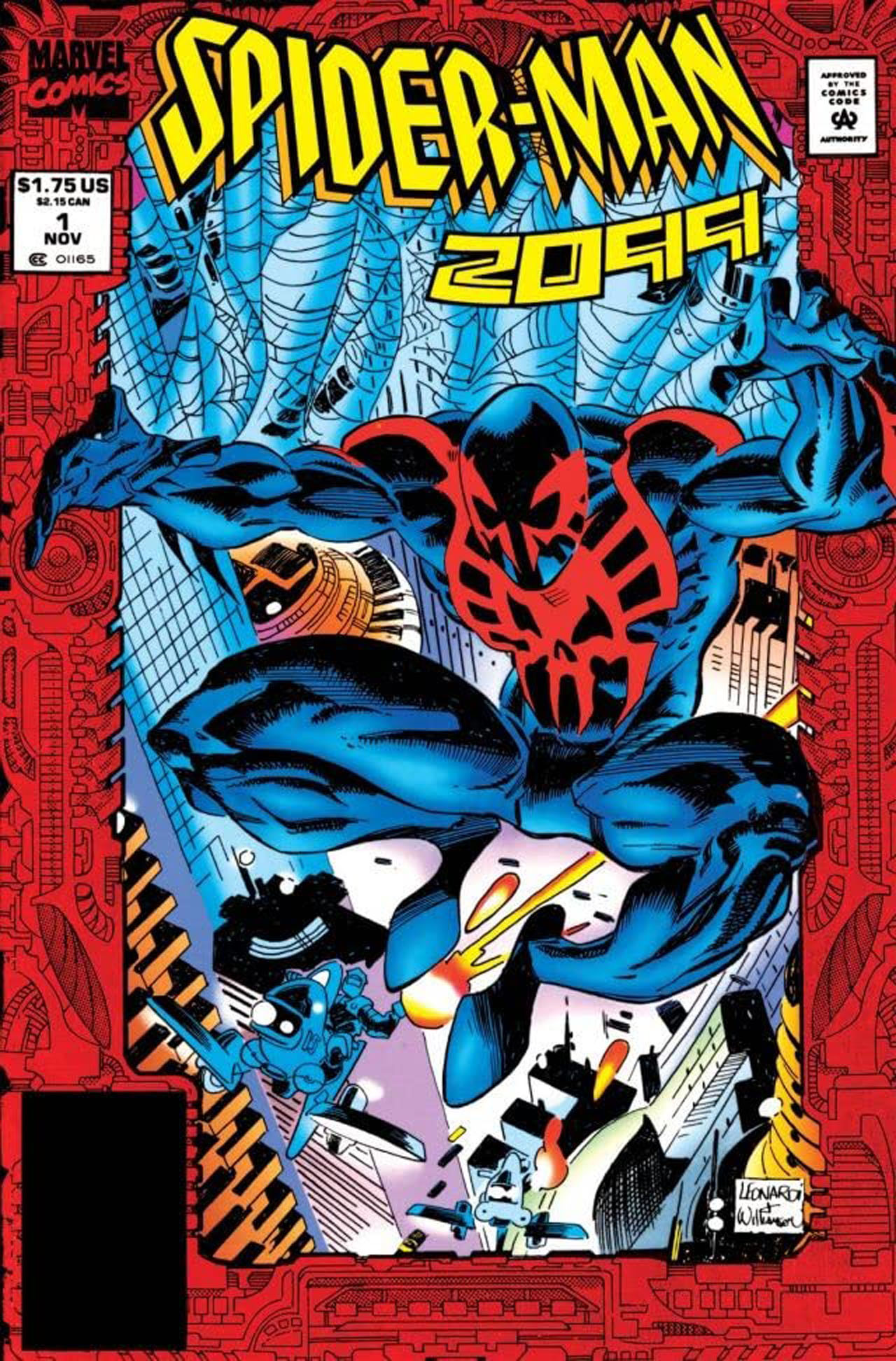
Joined by artist Rick Leonardi for roughly half of its 46-issue run, the series started off with a buzz as one of the hippest and smartest books in the line. Still on the Incredible Hulk title at the time, the book was seen as another feather in David's cap – a cool expansion on an established franchise that made sense worked in the context in which it was set and didn't feel forced. Heck, the character even had his own action figure. Okay, okay, so even a loser like Adam-X from the X-Men had an action figure back then, so that's no real measure of popularity…but still, Spider-Man 2099 felt cool.
The world of 2099 was your basic near-dystopian future, with corporations exerting their will on the populace unchecked, and the government running the country as a virtual police-state.
As corporate espionage is a regular and accepted practice, Miguel O'Hara, an employee of Alchemax, was assigned the task of creating a super-human corporate "raider" (in all sense of the word) modeled after the hero called Spider-Man. Incensed at the use of human guinea pigs in a genetic experiment, O'Hara quit Alchemax.
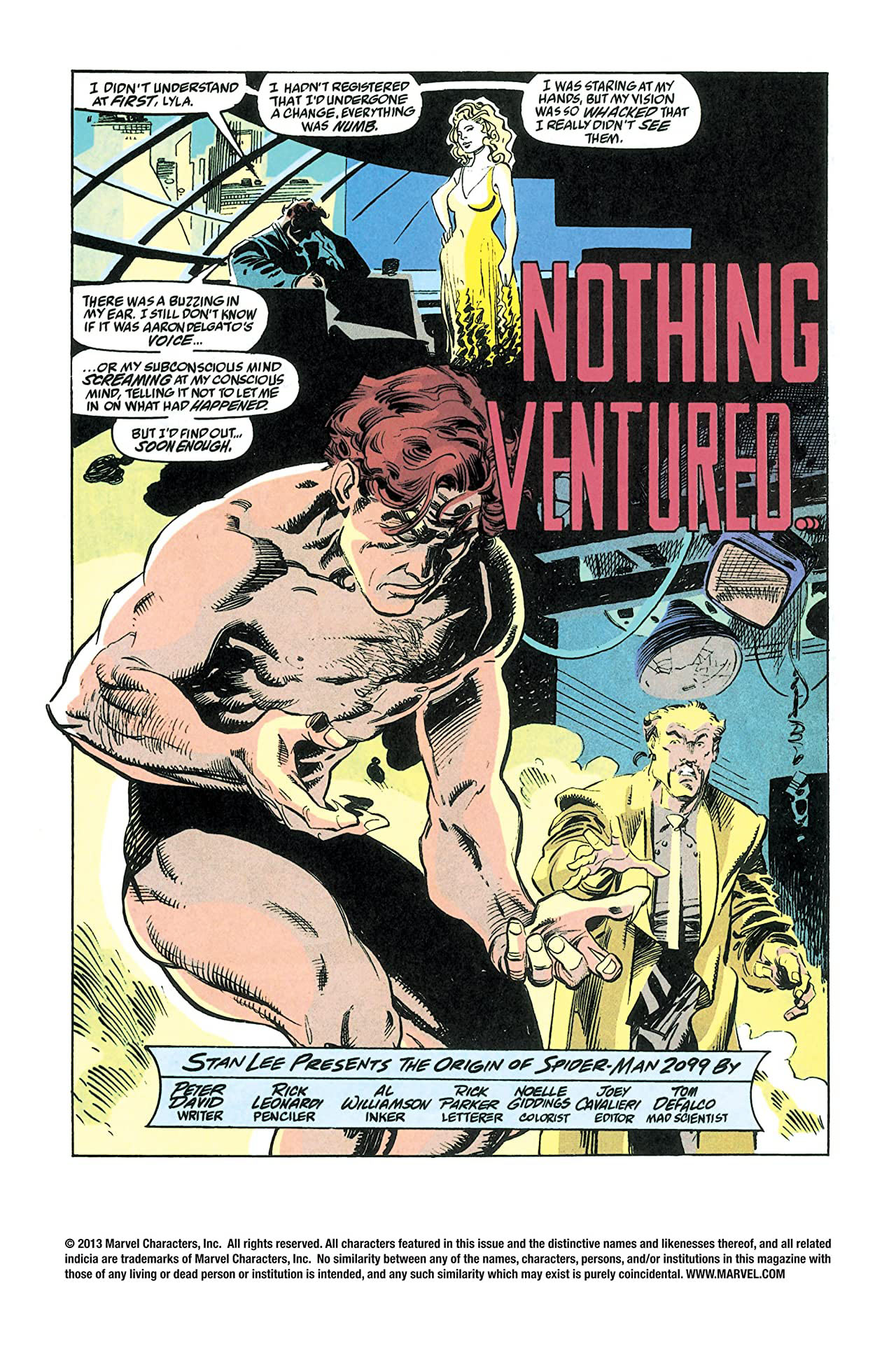
But, unbeknownst to him, Alchemax head honcho Tyler Stone, slipped a bit of the drug called Rapture into his goodbye drink. Highly addictive and highly deadly, Rapture is only sold by one provider - Alchemax. As Stone figured, while O'Hara may want to quit, he had to stay with Alchemax to get his fix on a regular basis.
Angered by the treachery and determined to not succumb to Stone's trickery, Miguel returned to his lab and tried to replace his genetic structure with an older, saved version.
Comic deals, prizes and latest news
Get the best comic news, insights, opinions, analysis and more!
Unfortunately, thanks to some sabotage from an embittered Alchemax employee, Miguel's genetic structure is mixed with that of an arachnid. Spider + man = Spider-Man, the date = 2099, all told you've got Spider-Man 2099.
When setting up the origin for Spider-Man 2099, David tried his best to make him different from the original.
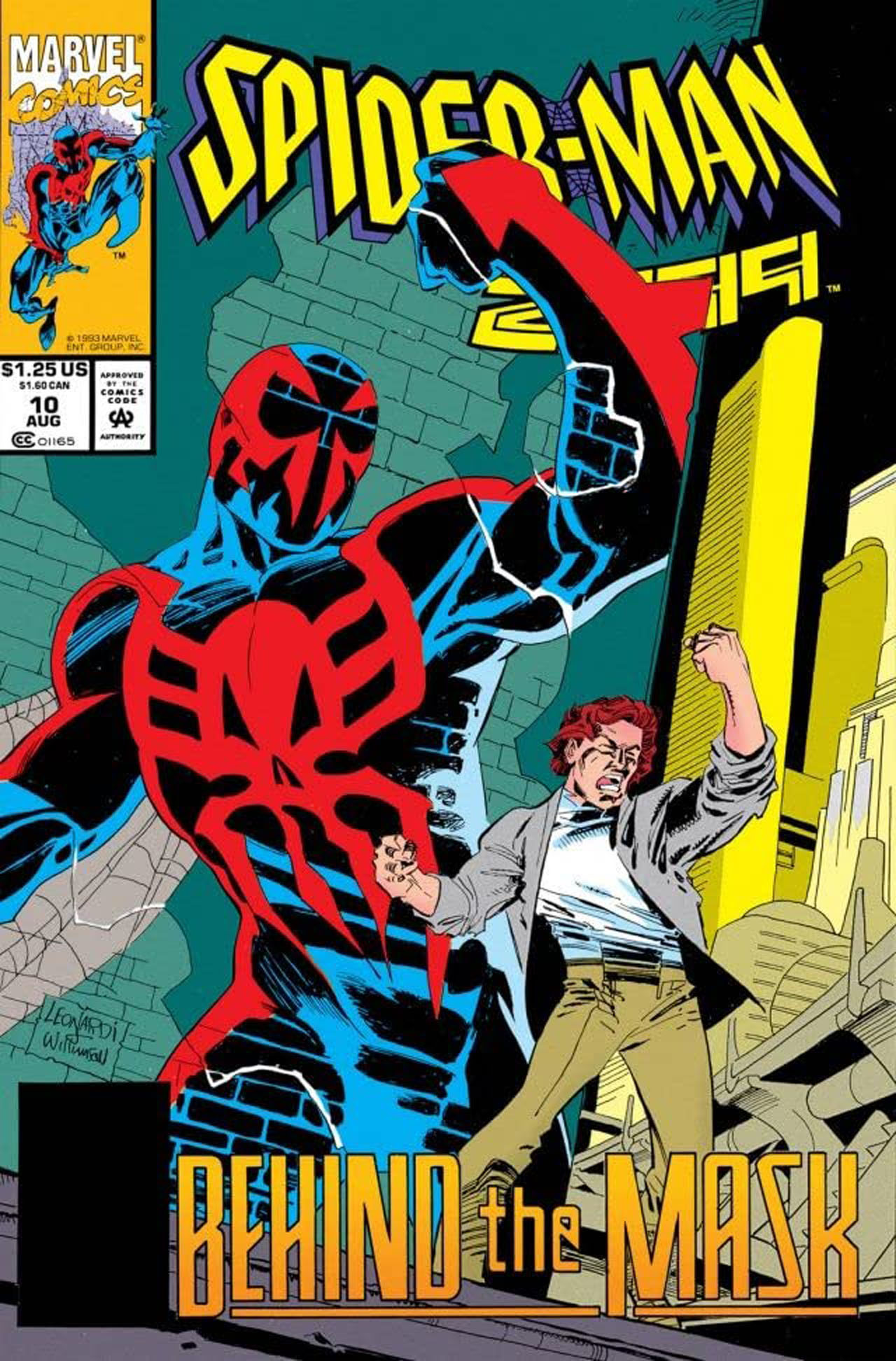
"Basically, I inverted the modern-day Spider-Man wherever I could," David said. "Current Spidey is chatty in costume, and reserved as Peter Parker. So I had Spider-Man 2099 be fairly mute in costume and a wiseacre as Miguel. Peter's webspinners were mechanical; Miguel's biological. Peter's wall-crawling abilities were never really explained; he just kind of stuck to the wall. Miguel had talons. Peter's 'spider-sense' was nearly mystical in nature. Miguel had accelerated vision that enabled him to see things from great distances and practically 360 degrees around him.
"Actually, when you think about it, Spider-Man 2099 is more or less exactly what they did in the Sam Raimi's movie Spider-Man, although Miguel glided with the webbing on his back rather than swing on weblines."
David found the experience somewhat liberating and even made sure the new hero's family structure was opposite to that of the original Spider-Man, but at the same time, had a ring of familiarity or two.
"I was looking to create a family structure unlike Peter Parker's," David said. "The female in his life was his mother, not his aunt, and she was a loon. I gave him a fiancée and a brother. In short, I worked to make him far less of a loner."
Still, Spider-Man is part of a franchise, so it was impossible to completely avoid some things from the previous era. Namely, Spider-Man's villains…at least in name. David admits there were times older villains were recreated in the 2099 universe to help out with sales. Specifically, Venom 2099.
"We were looking to boost sales and Venom was the number one villain that fans wanted to see a 2099 version of," David admitted. "So it was more or less, 'Okay, fine, you want it? You got it. Now buy the damned book.'"
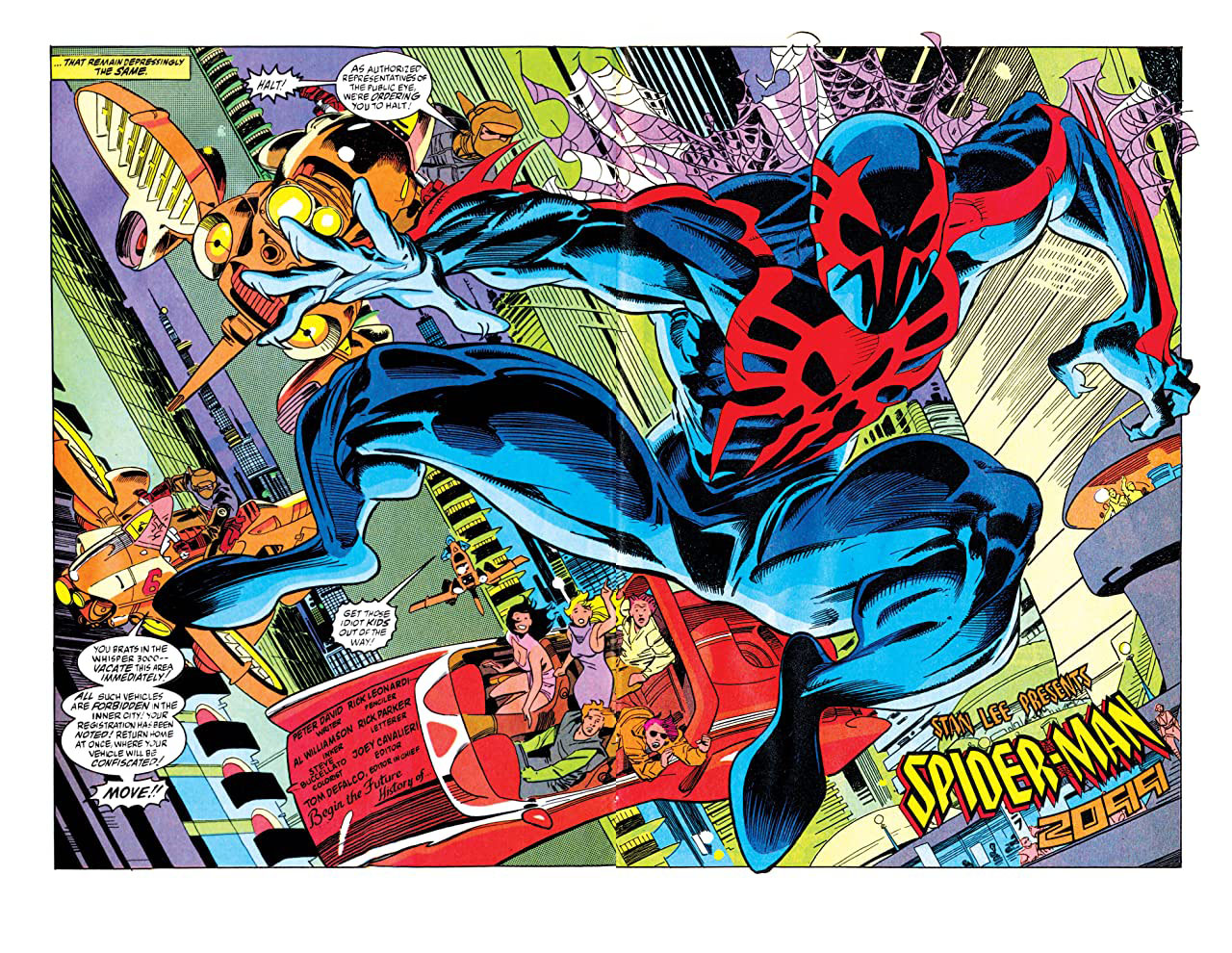
Many things about the series clicked with the fans in the early issues, but for the writer, the high point for the book, at least as far as the title's quality, was working with Leonardi.
"Rick is an exceptionally talented artist with a very strong point of view, and is very much responsible for much of the book's early success," David remembered. "No knock intended on those artists who came after him, but it wasn't nearly as strong a title without him."
O'Hara may have even been a bit more genuine than Parker, David said, because his reasons for donning the spider-suit grew over time, as opposed to being motivated by one singular event.

"He was more 'realistic' in that Peter Parker does what he does out of a sense of guilt," David notes. "That's a lot of guilt. Most of us would have gotten over it by now. Not Peter. To a degree, Peter's 'hero's journey' was completed in Amazing Fantasy #15. Everything after that has been a follow-up to the lesson he already learned.
"Miguel, on the other hand, had no single defining moment that made him say, 'Yes, I must do this.' His was a far more detailed realization of the type of world he truly lived in and what he could do to improve it. In real life, epiphanies and overnight change rarely happen. Change is much more a gradual process, and on that basis, Miguel's journey seemed more grounded in reality."
Despite the criticism the line takes nowadays, the title proved to be a success for most of its run. Though David admits there were areas he would have liked to explore more fully.
"Hey, Spider-Man 2099 #1 is the highest-selling single issue of any comic I've ever written, ever," David pointed out. "Overall I did what I wanted to do with it. I would have liked more opportunity to explore other aspects of the 2099 world, but for the most part, I was pleased with the series."
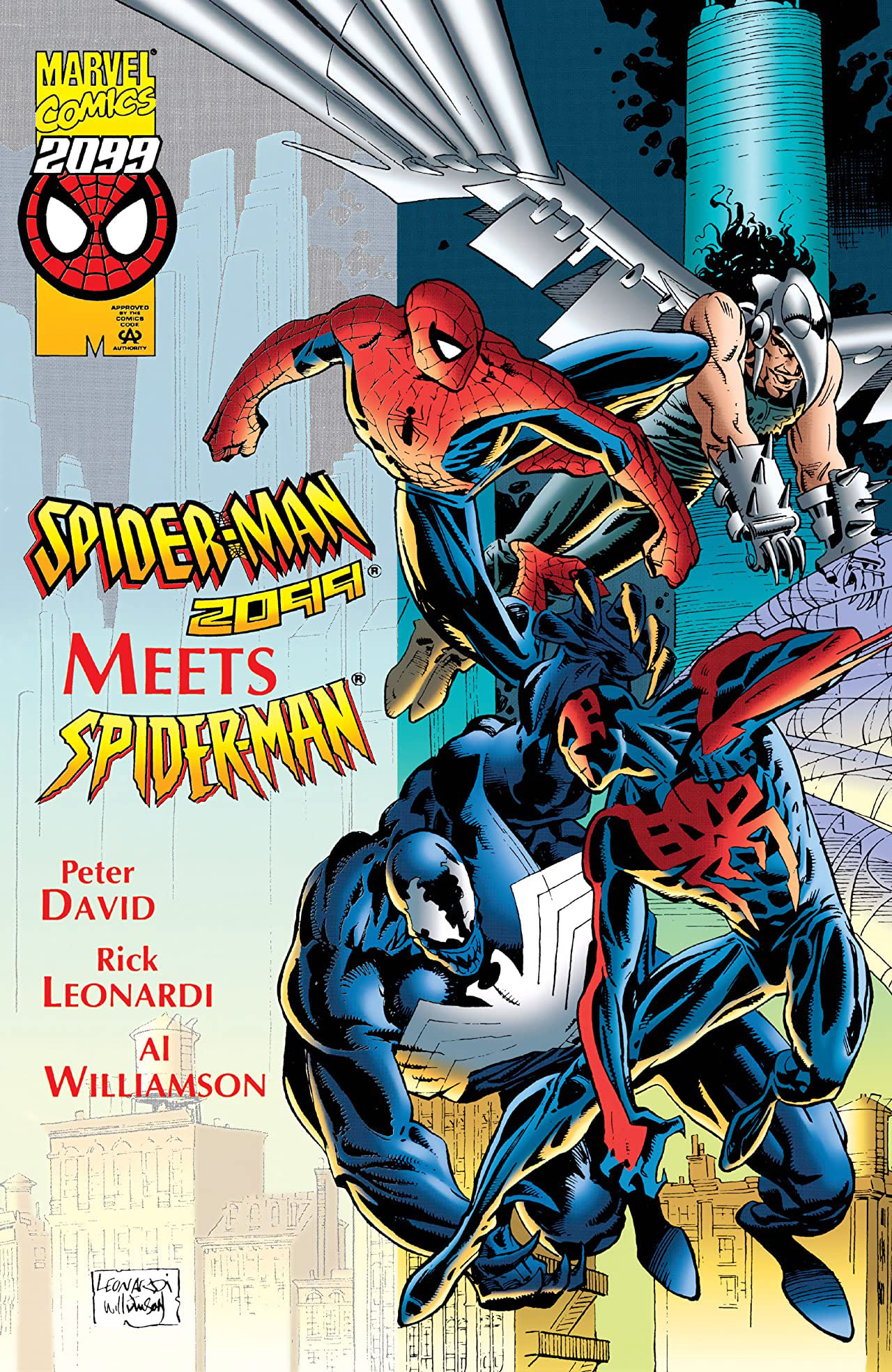
One of the more interesting events in the life of Spider-Man 2099 was his crossover with the 'regular' Spider-Man. At the time, however, Spider-Man was mired in 'The Clone Saga.'
"That was interesting, actually," David said. "At the time we were doing the crossover, we were told we could have Miguel meet either Peter Parker or Ben Reilly. We were strongly advised to use Ben because we were assured that he was the new and future Spider-Man. I refused to believe it. My attitude was that he would never, ever last. And if we did go with Ben, then when Peter Parker returned to the fold as the one and only Spider-Man, then the crossover would just be this bizarre footnote rather than the definitive meeting I wanted it to be. So Joey [Cavalieri, 2099 editor] and I mutually decided, to hell with Ben, Miguel is meeting Peter Parker. Sure glad I did it that way."
Being that the 2099 line occurred in the day when Marvel's finances and possible future changed daily, and sudden firings were the rule more than the exception, Cavalieri was unexpectedly fired from the company in early 1996. Like virtually all of the other writers in the line, David chose to show solidarity with his editor, and resigned from the book.
"I was always grateful to Marvel for contacting me when they did the big 2099 wrap-up," David said. "I think it was Tom Brevoort - I hope I'm right; if not, I apologize - who said, 'Tell us what you hated about what was done on Spider-Man 2099 after you left, and we'll fix it.' So I did. And in two or three panels in the wrap-up they fixed everything, which was pretty amazing.
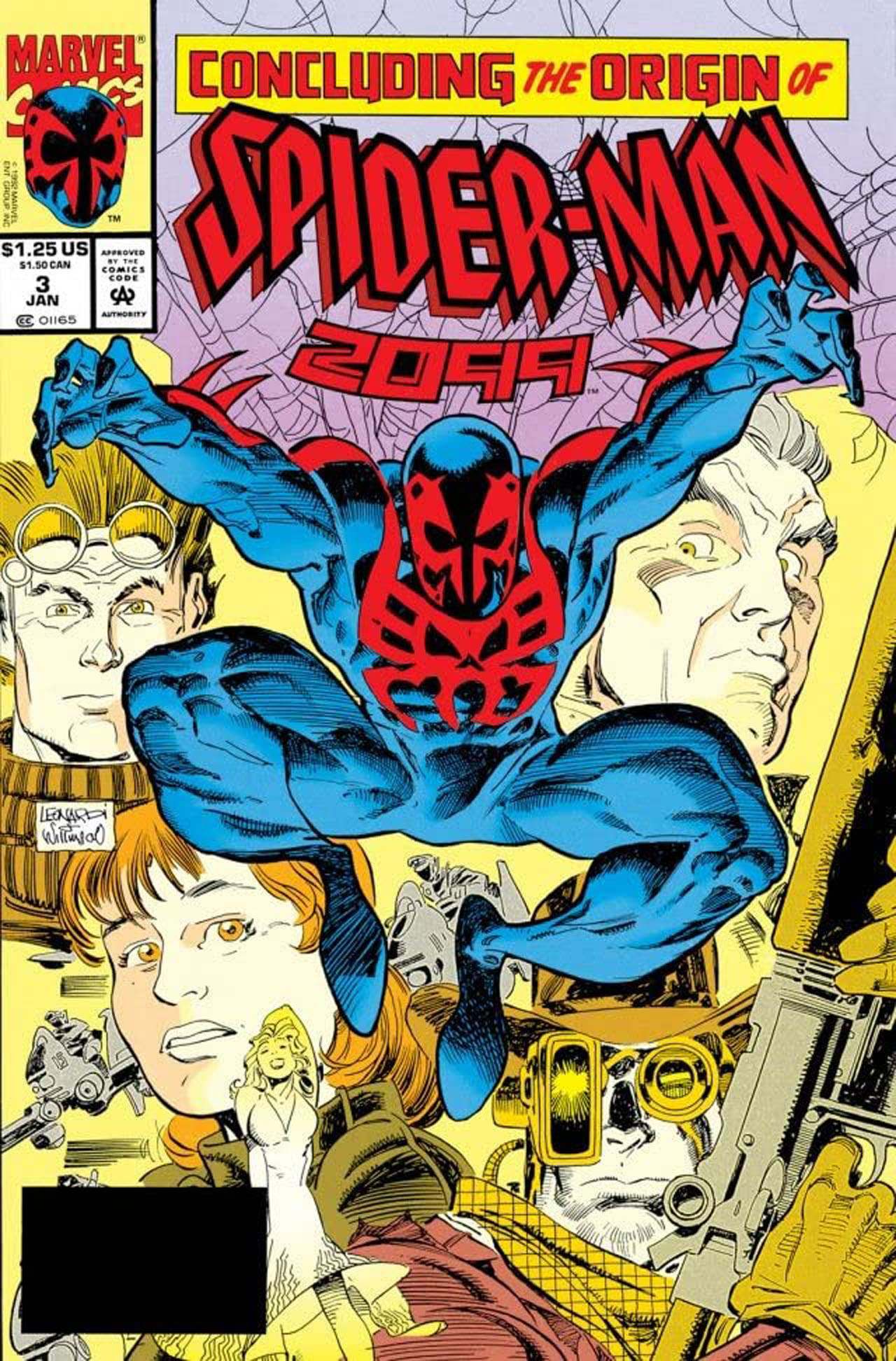
"I think there were two issues after I left. In those issues, they killed off Miguel's mother and established that Miggy's brother, Gabe, was the Goblin rather than Father Jennifer, as I'd intended, and even changed the dialogue in my last issue so that an entire sequence made no sense. Marvel wound up doing some sort of big one-shot some months later, and in the course of the story casually undid the things done in those last couple of issues that torqued me."
While the series may be long gone, and the current Marvel regime means its doubtful that they'll ever return, David's fans know that the characters aren't too far from his heart – Miguel did make a guest appearance in Captain Marvel. As for a full-on return for the character, David's up for it but is very, very skeptical that O'Hara will ever be seen again.
"Sure, but it'll never happen," David said when asked if he was up for another return to the world of 2099. "Look at all the grief I got from Marvel just for guest-starring him in Captain Marvel."
Spider-Man 2099 was named Marvel's top new character of 1994 in Marvel Yearbook: the '90s.
Alex Segura is an acclaimed writer of novels, comic books, and podcasts. He is the author of Star Wars Poe Dameron: Free Fall, the Pete Fernandez Mystery series (including the Anthony Award-nominated crime novels Dangerous Ends, Blackout. and Miami Midnight), and the upcoming Secret Identity (Flatiron Books). He has also written a number of comic books, most notably the superhero noir The Black Ghost, the YA music series The Archies, and the 'Archie Meets' collection of crossovers, featuring real-life cameos from the Ramones, B-52s, and more. He is also the co-creator/co-writer of the Lethal Lit crime/YA podcast from iHeart Radio, which was named one of the best podcasts of 2015 by The New York Times. By day he is Co-President of Archie Comics. A Miami native, he lives in New York with his wife and children.
